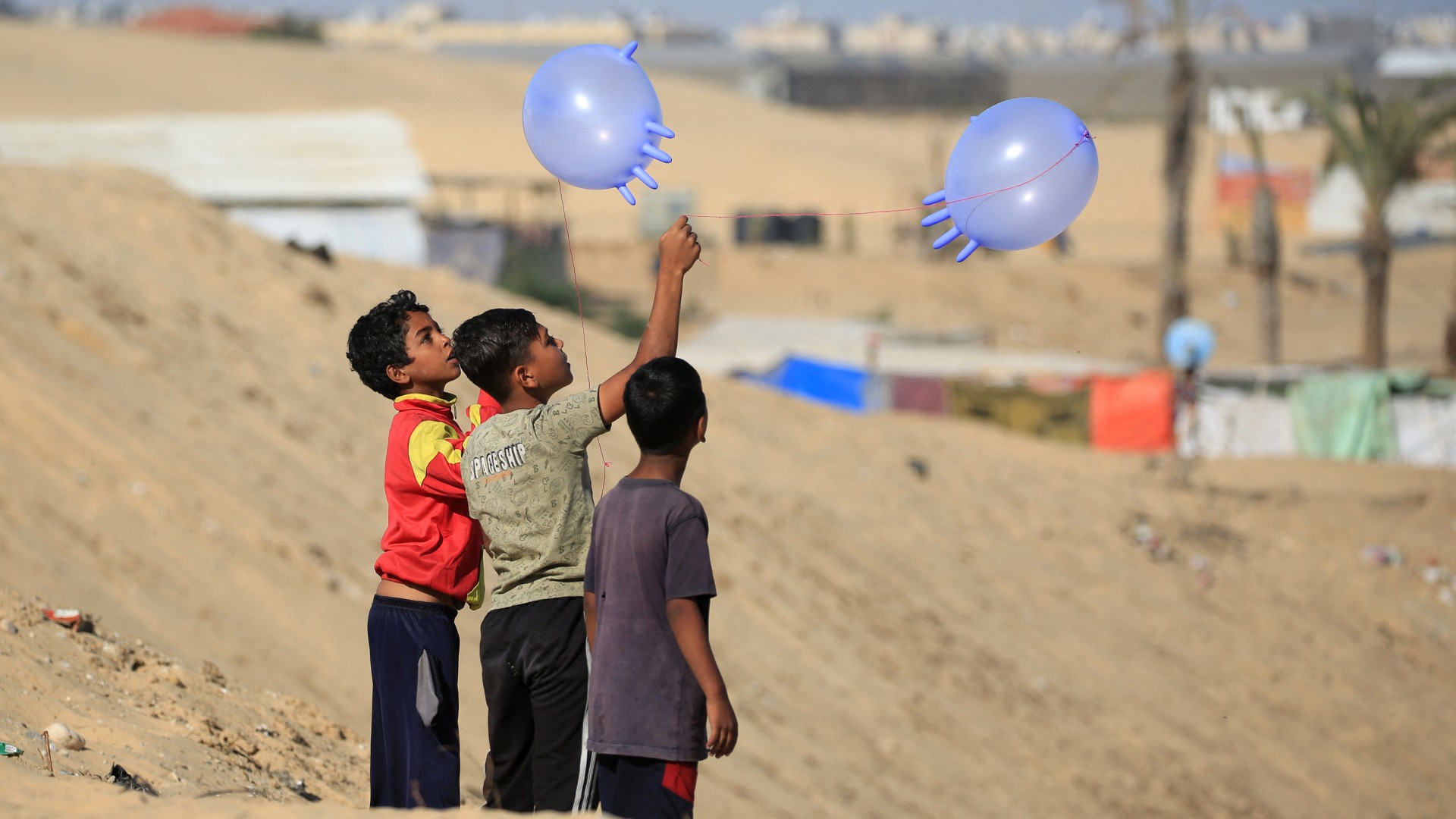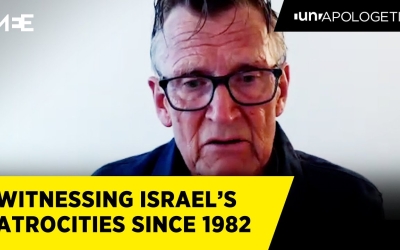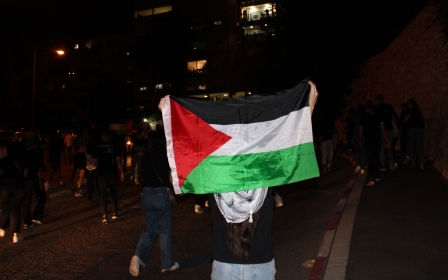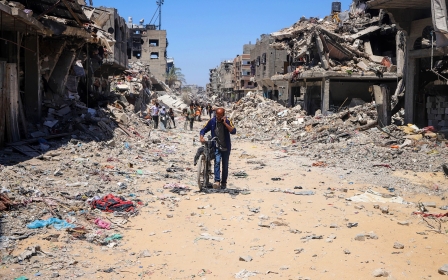War on Gaza: Over a million flee Rafah as Israel weighs up truce proposal
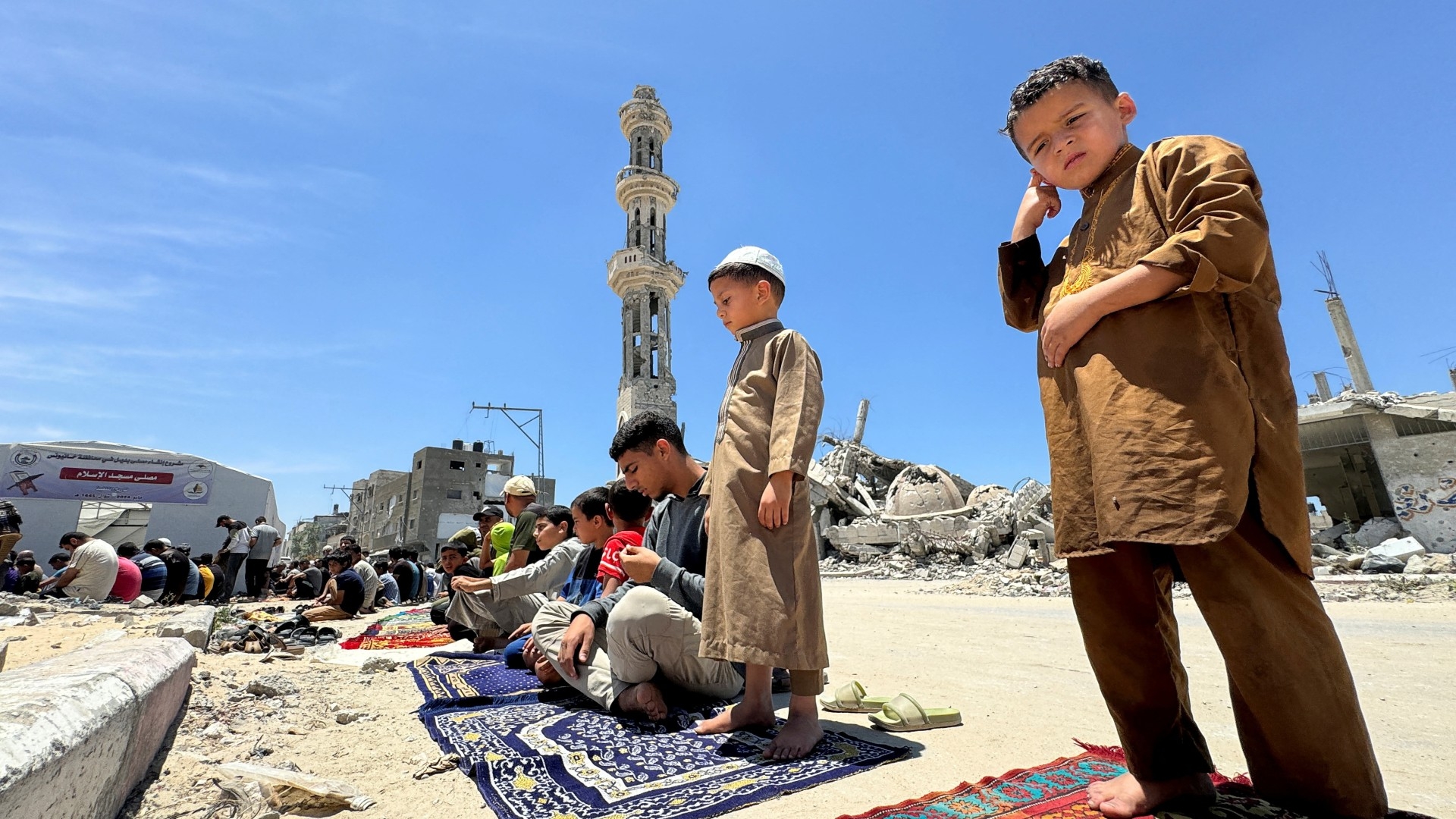
The ongoing Israeli invasion of southern Gaza’s Rafah has forcibly displaced over one million Palestinians into damaged and destroyed facilities in nearby Khan Younis, the UN said on Monday.
Conditions for families there are “unspeakable,” Unrwa, the UN agency for Palestinian refugees, said in a social media post, adding that it’s becoming increasingly challenging to provide essential services.
The ground attack on the city, launched in early May, disrupted the flow of aid into Gaza after Israeli forces seized the vital Rafah crossing with Egypt and closed off aid.
More than 3,500 Palestinian children are now at risk of death due to the "Israeli policy of starvation", the Gaza-based government media office said on Monday.
The children, who are under five years of age, suffer from acute malnutrition and are exposed to infectious diseases.
New MEE newsletter: Jerusalem Dispatch
Sign up to get the latest insights and analysis on Israel-Palestine, alongside Turkey Unpacked and other MEE newsletters
The media office said the Israeli blockade on aid has led to a shortage of food, milk, nutritional supplements and vaccinations.
Meanwhile, Israeli bombardment continued across the Gaza Strip, killing at least 40 people and wounding 150 in the past 24 hours, according to the Palestinian health ministry.
Israeli air strikes in central Gaza’s Nuseirat and Bureij refugee camps, Khan Younis and Rafah killed 22 Palestinians, including at least nine children, Palestinian news agency Wafa said.
Bombing has also been reported in residential areas in Gaza City, where 10 people have been killed across Tel al-Hawa, Zeitoun and Sabra neighbourhoods.
Israel’s war on Gaza has killed at least 36,479 Palestinians, with over 82,777 wounded and an estimated 10,000 missing, believed to be dead and buried under rubble, according to the Palestinians health ministry.
More than 15,000 children and 10,000 women are among those killed.
Separately, a suspected Israeli raid in the countryside of Syria's Aleppo killed 17 people, according to the Syrian Observatory For Human Rights (SOHR). The UK-based activist group said 12 of those killed were members of Syrian and foreign pro-Iran armed groups.
In Israel, the remains of a man presumed to be a captive in Gaza has been found in Nir Oz, a kibbutz where he’s believed to have been killed during the Hamas-led attack on 7 October.
Israel ceasefire discussions
Discussions are growing in Israel over the Gaza ceasefire proposal that US President Joe Biden said Israeli officials presented last week.
The deal as outlined by Biden appears to suggest the agreement would end the war on Gaza and Israel’s military presence there, as well as release all captives in exchange for Palestinian prisoners.
Those conditions have angered far-right ministers Itamar Ben Gvir and Bezalel Smotrich, who threatened to quit Prime Minister Benjamin Netanyahu's governing coalition, which would spark its collapse.
Smotrich, the finance minister, met on Monday with rabbis associated with the Religious Zionism right-wing political movement to discuss his party's future should the deal go ahead.
According to Kann news, sources say Smotrich was considering leaving the government even before the ceasefire could be agreed by Israel.
Meanwhile, Netanyahu was set to discuss the proposal with Ben Gvir in an upcoming meeting, according to Israeli media.
After Biden presented what he said was an Israeli ceasefire proposal on Friday, Netanyahu’s office issued a vague statement in response.
It said that under the proposal, Israel would “continue to insist” that its conditions to end the war are met, which include “destruction of Hamas military and governing capabilities, the freeing of all hostages and ensuring that Gaza no longer poses a threat to Israel”.
“The notion that Israel will agree to a permanent ceasefire before these conditions are fulfilled is a non-starter,” the statement read.
On Monday, Israeli media reported that Netanyahu told the Knesset's foreign affairs and defence committee that the outline of the proposal presented by Biden was “not accurate”.
The prime minister was quoted as saying the first phase of the deal, involving a temporary ceasefire, could be undertaken without commitment to later stages.
Biden on Friday declared it was “time for this war to end” as he laid out the plan presented by Israel.
According to the president, the first phase involves talks for the second phase which includes reaching “the cessation of hostilities permanently”.
Agreement on details of the second phase would take place during the first one, but the ceasefire would remain in place for as long as talks continued, he said.
Netanyahu appeared to contradict this on Monday by saying Israel would not be obligated to end the war and fulfil all three stages of the deal after the first phase begins.
Egyptian Foreign Minister Sameh Shoukry said on Monday that Hamas’s initial response to the proposal presented by Biden was positive, and that mediators were now waiting for Israel’s response.
Middle East Eye delivers independent and unrivalled coverage and analysis of the Middle East, North Africa and beyond. To learn more about republishing this content and the associated fees, please fill out this form. More about MEE can be found here.


